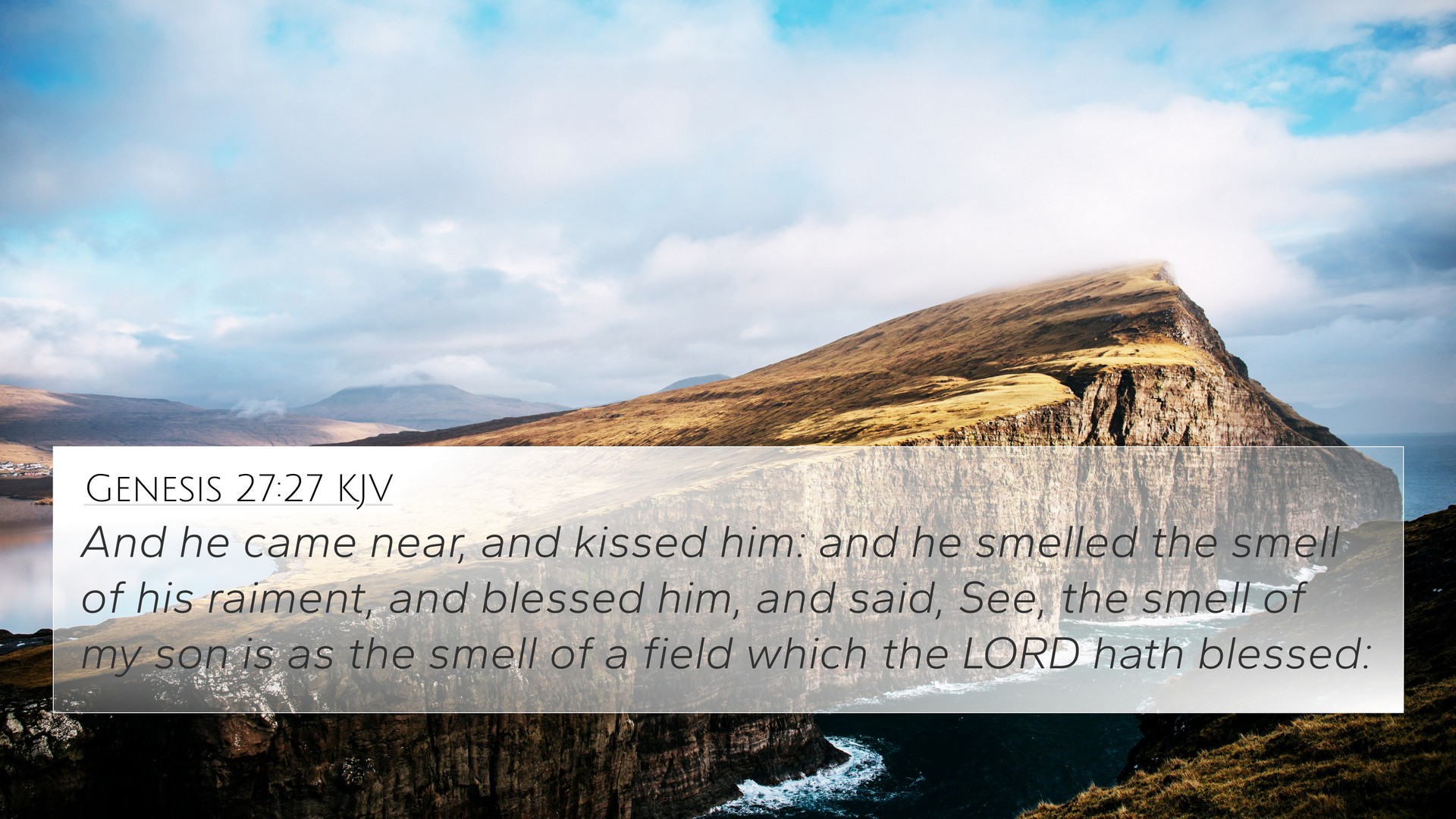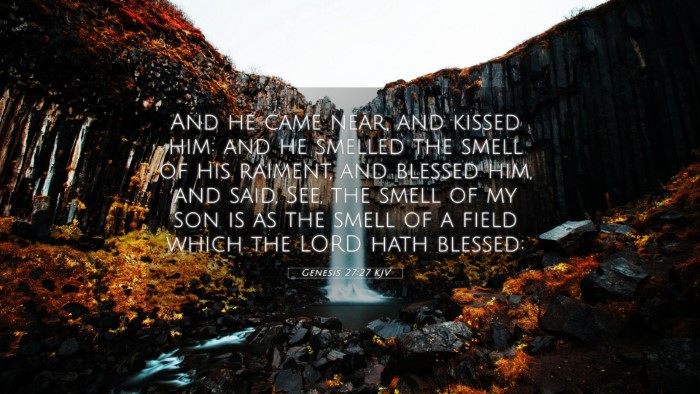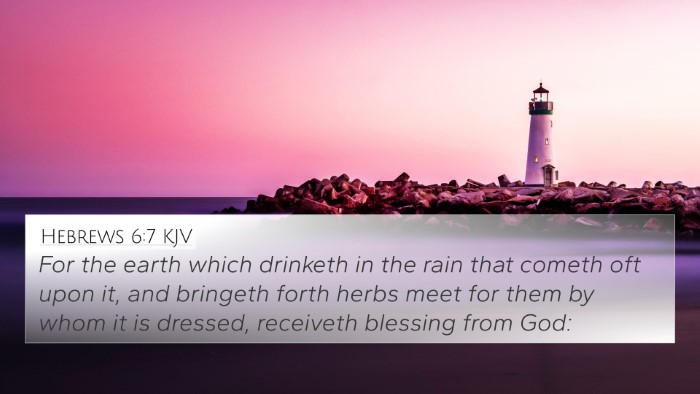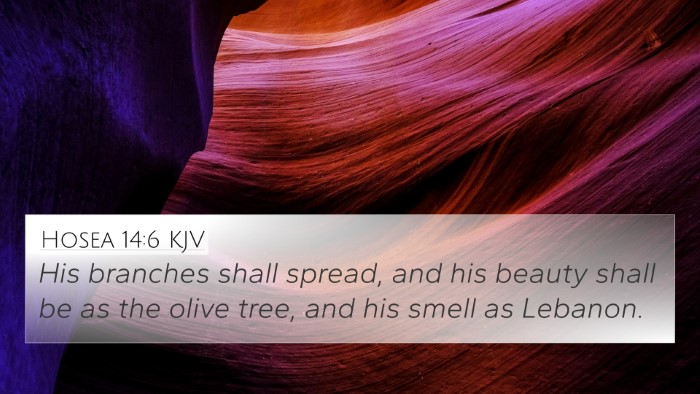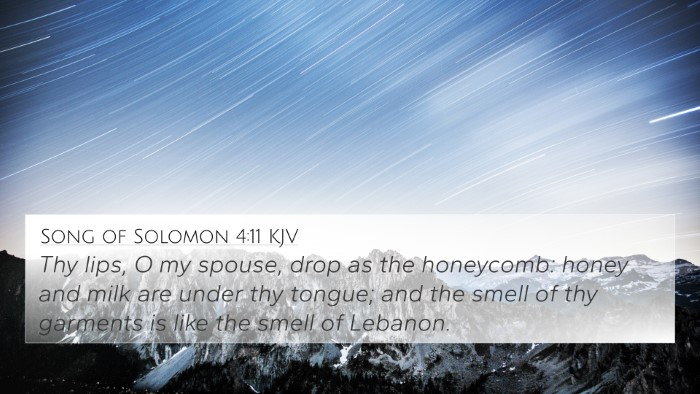Understanding Genesis 27:27
Genesis 27:27 states: "And he came near, and kissed him: and he smelled the smell of his raiment, and blessed him, and said, See, the smell of my son is as the smell of a field which the Lord hath blessed."
Summary of Genesis 27:27 Meaning
This verse is a part of the narrative in which Jacob, disguised as his brother Esau, receives his father Isaac's blessing. The act of Isaac drawing near to Jacob, kissing him, and being captivated by the smell of his garments symbolize more than just physical proximity; they reflect the deep emotional and spiritual connections involved in blessings and inheritance.
Key Insights from Commentaries
-
Matthew Henry:
Henry emphasizes the significance of the blessing, noting that through this act, Jacob obtained the birthright that was intended for Esau. The aroma of Jacob's garments, which somehow reminds Isaac of the fruitful fields, symbolizes prosperity and divine favor, suggesting that blessings carry rich implications.
-
Albert Barnes:
Barnes points out that the blessings Isaac pronounces upon Jacob are irrevocable and have lasting effects throughout the biblical narrative. The act of smelling Jacob's clothing indeed serves to affirm the mistaken identity, illustrating how God's providential plan unfolds through human actions and deceptions.
-
Adam Clarke:
Clarke expands on the metaphor of the smell of the field, arguing that it denotes the good land of Canaan, which was blessed by God. This reference ties into the larger biblical theme of land blessings and the covenant promises that are central to Israel's identity.
Related Themes and Connections
This verse connects with several important themes in the Bible, notably the dynamics of family, deception, and divine providence.
Cross-Referencing Biblical Texts
To deepen the understanding of Genesis 27:27, here are key Bible verse cross-references that relate to its themes:
- Genesis 25:29-34: This passage discusses the selling of Esau's birthright, establishing the foundation for the blessings exchanged later.
- Genesis 28:1-4: Isaac later blesses Jacob again, reinforcing the covenant, demonstrating the continuity of God's promises.
- Hebrews 12:16-17: This New Testament reference addresses Esau's loss of his birthright, linking back to the original narrative and its consequences.
- Romans 9:10-13: Paul discusses the election of Jacob over Esau, providing a theological reflection on God's sovereign choice.
- Genesis 26:12-14: Isaac blessed with prosperity, connects to the blessings mentioned in Genesis 27:27, highlighting the theme of inheritance.
- Genesis 37:3: The significance of garments in familial blessings is echoed in the story of Joseph and his coat of many colors.
- Genesis 49:22-26: Jacob's blessings upon his sons further illustrate the importance of blessings in biblical tradition.
Insights on Inter-Biblical Dialogue
The connections between Bible verses can enhance the understanding of Genesis 27:27, showing how it intersects with the themes of family dynamics, identity, and divine providence throughout Scripture.
Utilizing Tools for Bible Cross-Referencing
To effectively study Genesis 27:27 and its wider implications, consider utilizing various tools for Bible cross-referencing, such as:
- Bible concordance to find specific verses.
- Bible cross-reference guide for thematic studies.
- Cross-reference Bible study methods for deeper engagement with Scripture.
Conclusion
Genesis 27:27 serves not only as a historical account but also as a rich text for theological reflection. Its implications stretch across the Old and New Testaments, reinforcing the idea of God's providence in human affairs and establishing a foundation for understanding divine blessings. By exploring the cross-references and related scriptures, one can unveil the intricate tapestry of God's promises and plans throughout the Bible.
